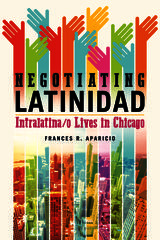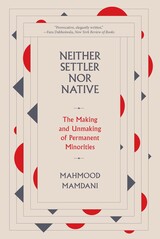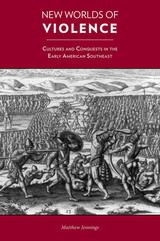4 start with N start with N


Prospect Top 50 Thinker of 2021
British Academy Book Prize Finalist
PROSE Award Finalist
“Provocative, elegantly written.”
—Fara Dabhoiwala, New York Review of Books
“Demonstrates how a broad rethinking of political issues becomes possible when Western ideals and practices are examined from the vantage point of Asia and Africa.”
—Pankaj Mishra, New York Review of Books
In case after case around the globe—from Israel to Sudan—the colonial state and the nation-state have been constructed through the politicization of a religious or ethnic majority at the expense of an equally manufactured minority. The model emerged in America, where genocide and internment on reservations created a permanent native minority. In Europe, this template would be used both by the Nazis and the Allies.
Neither Settler nor Native offers a vision for arresting this process. Mahmood Mamdani points to inherent limitations in the legal solution attempted at Nuremberg. Political violence demands political solutions: not criminal justice but a rethinking of the political community to include victims and perpetrators, bystanders and beneficiaries. Making the radical argument that the nation-state was born of colonialism, he calls on us to delink the nation from the state so as to ensure equal political rights for all who live within its boundaries.
“A deeply learned account of the origins of our modern world…Mamdani rejects the current focus on human rights as the means to bring justice to the victims of this colonial and postcolonial bloodshed. Instead, he calls for a new kind of political imagination…Joining the ranks of Hannah Arendt’s Imperialism, Frantz Fanon’s The Wretched of the Earth, and Edward Said’s Orientalism, this book is destined to become a classic text of postcolonial studies and political theory.”
—Moustafa Bayoumi, author of How Does It Feel to Be a Problem?
“A masterwork of historical comparison and razor-sharp political analysis, with grave lessons about the pitfalls of forgetting, moralizing, or criminalizing this violence. Mamdani also offers a hopeful rejoinder in a revived politics of decolonization.”
—Karuna Mantena, Columbia University
“A powerfully original argument, one that supplements political analysis with a map for our political future.”
—Faisal Devji, University of Oxford

In one essay, the status of Asians born in America both before and after the 1965 Immigration and Nationality Act is compared, with particular attention directed toward the exploitation of Asian immigrants as a source of cheap physical labor. In another piece, the link between America’s colonization of Asian countries and international sex tourism is explored. As these essays make clear, the United States easily exploits Asians and Asian Americans as it simultaneously enforces distinctions that render Asians linguistically, culturally, and racially “foreign.” Also included is an essay based on a series of interviews with Filipino store owners and workers in Southern California; analysis of the Christian Ecumenical perspectives on the Asian sex tour industry and the activities of ECPAT, a group established to end child prostitution in Asian tourism; and an account of a South Asian woman’s attempt to unionize taxicab drivers in New York City.
Contributors. Anuradha G. Advani, Enrique Bonus, Oscar V. Campomanes, Y. David Chung, Allan DeSouza, Gayatri Gopinath, Helen Heran Jun, Laura Hyun Yi Kang, Peter Kiang, Elaine H. Kim, Min-Jung Kim, Lisa Lowe, Eithne Liubheid, Long Nguyen, Viet Thanh Nguyen, Eliza Noh

From the early 1500s to the mid-1700s, the American Southeast was the scene of continuous
tumult as European powers vied for dominance in the region while waging war on Native American communities. Yet even before Hernando de Soto landed his expeditionary
force on the Gulf shores of Florida, Native Americans had created their own “cultures of violence”: sets of ideas about when it was appropriate to use violence and what sorts of violence were appropriate to a given situation.
In New Worlds of Violence, Matthew Jennings offers a persuasive new framework for understanding the European–Native American contact period and the conflicts among indigenous peoples that preceded it. This pioneering approach posits that every group present in the Southeast had its own ideas about the use of violence and that these ideas changed over time as they collided with one another. The book starts with the Mississippian era and continues through the successive Spanish and English invasions of the Native South. Jennings argues that the English conquered the Southeast because they were able to force everyone else to adapt to their culture of violence, which, of course, changed over time as well. By 1740, a peculiarly Anglo-American culture of violence was in place that would profoundly influence the expansion of England’s colonies and the eventual southern United States. While Native and African violence were present in this world, they moved in circles defined by the English.
New Worlds of Violence concludes by pointing out that long-lasting violence bears long-lasting consequences. An important contribution to the growing body of work on the early Southeast, this book will significantly broaden readers’ understanding of America’s violent past.
Matthew Jennings is an assistant professor of history at Macon State College in Macon, Georgia. He is the author of “Violence in a Shattered World” in Mapping the Shatter Zone: The European Invasion and the Transformation of the Mississippian World, edited by Robbie Ethridge and Sheri Shuck-Hall. His work has also appeared in The Uniting States, The South Carolina Encyclopedia, A Multicultural History of the United States, and The Encyclopedia of Native American History.
READERS
Browse our collection.
PUBLISHERS
See BiblioVault's publisher services.
STUDENT SERVICES
Files for college accessibility offices.
UChicago Accessibility Resources
home | accessibility | search | about | contact us
BiblioVault ® 2001 - 2024
The University of Chicago Press









